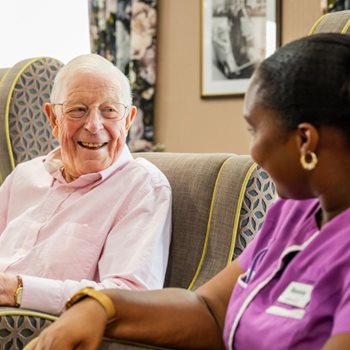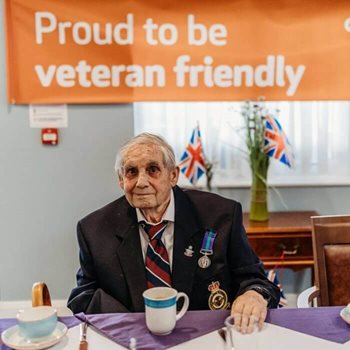Festive celebrations with loved ones living with dementia
Home news
Dec 10, 2015
The festive period has many triggers for memories such as music, films, old television programmes and smells such as Christmas spices, tangerines and satsumas.
Pauline Houchin, Head of Care & Clinical Services, looks at how to make the most of Christmas for someone living with dementia, and how to avoid stresses and pressure points that may take the shine off the family’s celebrations.
Every Christmas needs planning to be a success but creating a Christmas where a family member is living with dementia requires a blend of planning and a relaxed attitude to how the day runs. The good news is the steps are simple and the pleasure to be gained from time together as a family is immense.
- Grab a calendar
Work out when your loved one has needs their regular healthcare appointments and ensure they are scheduled into the New Year. At the same time check they have sufficient medication to see them comfortably through the holiday period.
- Double check
If you are going away with your loved one double check you have packed their medication and programme any telephone numbers for their GP, specialist, Admiral nurse or day club manager so you can gain support should you need. Also pack anything that gives your loved one comfort – some people have a special blanket, throw or cardigan that they find comforting. Ensure it is close at hand rather than in the boot of your car if you are going to be on a motorway.
- Get out the photo album
And find photographs of the relatives that you will be with over the holidays. Sit down together over a cup of tea and talk to your loved one about your friends and relatives. What do they remember about the photo? When and where was it taken? Do they remember other Christmases with the people in the photos. You can use any information you find out to plan a Christmas that feels familiar to them and to keep the conversations flowing with others over the festive period.
- Plan a day where your loved one can be really useful
When time is short it is it might feel to care for someone than to enable them to take care of themselves. But people feel valued and worthwhile when they can contribute to the running of the family. Take a day or an afternoon where you can work together on something that contributes towards Christmas – it could be wrapping presents, baking mince pies and sausage rolls or making paper chains. If they have limited mobility polishing the cutlery or writing Christmas cards or gift labels is still a way to join in.
- Stock-up the TV programme planner
Not only can you head-off complaints that there is nothing on the TV over the holidays but you can help your loved one by having much-loved Christmas programmes to hand. People with dementia find the familiar reassuring and sometimes, in their minds, they at a different age to their chronological age - so – they could be 30 and it is 1975. The Two Ronnies, Dad’s Army and Morecombe and Wise always go down well and are not a chore for the rest of the family. Satellite stations are already showing Christmas specials from yesteryear, as well as classic films, so get recording! Alternatively invest in box sets of the films and TV series your loved one enjoys.
- Think about a Christmas music playlist
Even for those with advanced dementia, music can trigger memories and bring joy. Put together a playlist of Christmas songs they love, whether that is Bing Crosby, Slade or the King’s College Choir. Singing along together is unifying and uplifting as well as fun.
- Christmas presents can increase wellbeing
Think about Christmas presents that can trigger memories for your loved one – a perfume they or one of their loved ones wore, essential oils that are relaxing and uplifting as well as familiar, an MP3 player chocked full of favourite songs, a grown-up colouring book with brightly coloured pencils, all of which are fun but are also helpful for reminiscence, maintaining life skills and keeping the person relaxed when they may become agitated.
- Plan lunch and the table decorations carefully
Senses are affected by dementia and depth perception and the ability to differentiate between things of similar colours are often diminished. Try having plates that contrast with the tablecloth so that your loved one can clearly see the plate and use foods of different colours – such as peas, red cabbage and carrots so that they can see the difference. It can be best to dish-up dinner rather than have serving dishes, as eye-hand coordination maybe impaired and it will save any spills and upsets. Do not put too much on a plate as appetites diminish with age and they can always ask for seconds. Older people tend to have a sweet-tooth, as taste buds weaken, so do not be surprised if dessert is the most popular course.
- Sometimes it all gets a bit too much
People with dementia can become anxious around lots of noise and activities as their senses cannot differentiate out one activity from another. Create a warm and cosy bolt-hole where they can go with a cup of tea if things feel too much for them. You can have a CD player available, a photo album or an activity they enjoy but keep the door open and make sure it is close to the family so they do not feel excluded.
- Have fun
It sounds obvious but we all set such high expectations for ourselves and for Christmas Day. Go with the flow, stay in the moment and take on-board the new memories you are creating for yourself and your own family.











